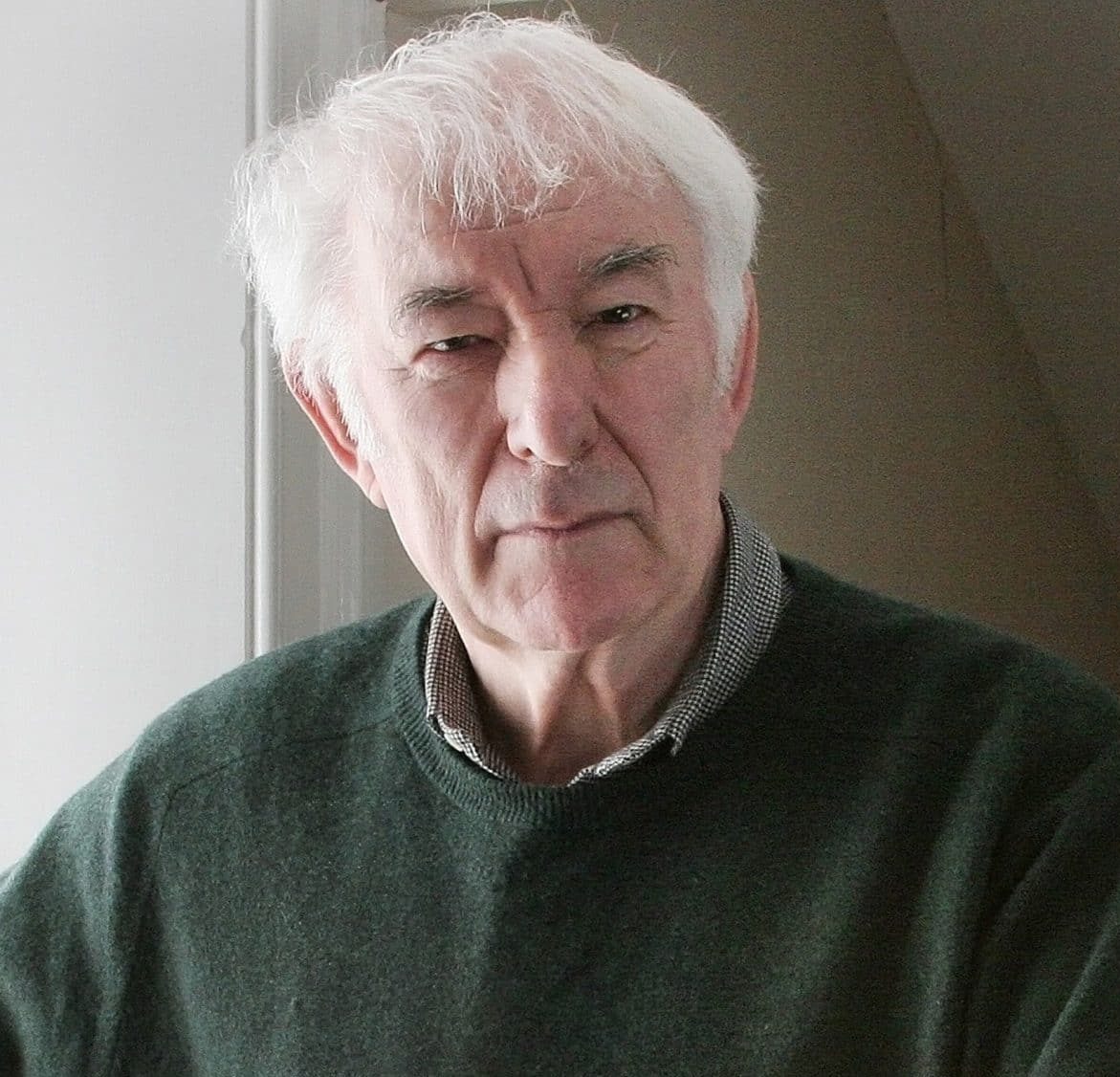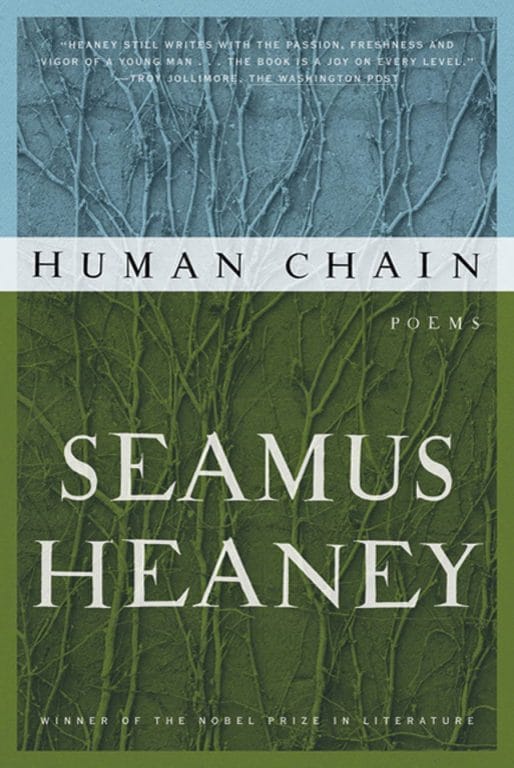
Seamus Heaney was born in Northern Ireland. Death of a Naturalist, his first collection, appeared in 1966, and since then he has published poetry, criticism, and translations that have established him as one of the leading poets of his generation. He has twice won the Whitbread Book of the Year award, for The Spirit Level (1996) and Beowulf (1999). In 1995 he was awarded the Nobel Prize in Literature. District and Circle, his eleventh collection of poems, was published in 2006 and was awarded the T. S. Eliot Prize.
The Griffin Trust For Excellence in Poetry presented its Lifetime Recognition Award to Seamus Heaney on June 6, 2012.
Seamus Heaney died on August 30, 2013. We offered our tribute and collected selections from the heartfelt words of many others here.

Judges’ Citation
The poems in Seamus Heaney’s Human Chain contain tones and phrases that are perfectly tuned; they are true to memory and loss, and somehow miraculously they also manage to offer a vision of what is above or beyond the mere facts.
The poems in Seamus Heaney’s Human Chain contain tones and phrases that are perfectly tuned; they are true to memory and loss, and somehow miraculously they also manage to offer a vision of what is above or beyond the mere facts. The feeling is elegiac but also loosened and buoyant. Memory in these poems is filled with tones of regret and undertones of anguish, but it can also appear in cadences of hard-won wonder. There is an active urge in the rhythms of these poems to capture the living breath of things; sometimes the breath is hushed, and other times wise and resigned in its way of holding rhythms in and then releasing them. In the most ambitious poem, Heaney wanders in the shadow of Virgil’s Aeneid, making his own journey in memory across Northern Ireland, allowing images and recollections in all their sonorous beauty to hit sharply against the sense of a time that has past, and can be recovered now in ways which are controlled but insistent in these poems.
Selected poems
by Seamus Heaney
viii
As one when the month is young sees a new moon
Fading into daytime, again it is her face
At the dormer window, her hurt still new.
My look behind me hurried as I unlock,
Switch on, rev up, pull out and drive away
In the car she’ll not have taken her eyes off,
The brakelights flicker-flushing at the corner
Like red lamps swung by RUC patrols
In the small hours on pre-Troubles roads
After dances, after our holdings on
And holdings back, the necking
And nay-saying age of impurity.
Copyright © 2010 by Seamus Heaney